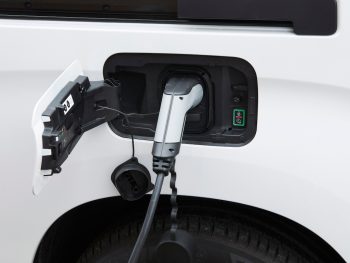UK light commercial vehicle registrations fell for the seventh month running in July, despite strong order books and fast-rising demand for electric vehicles.

A total of 18,722 units were registered last month, down 20.7% to 18,722 units, according to the new figures from the Society of Motor Manufacturers and Traders (SMMT). The decline is the continued result of ongoing global supply shortages caused by the Covid-19 pandemic, with last month’s total registrations some 23.9% below the pre-pandemic five-year average for July.
Registrations fell across all LCV segments. The biggest decline was in midsize vans weighing more than 2.0 tonnes to 2.5 tonnes, which declined by 49.8%. Smaller vans, less than or equal to 2.0 tonnes, fell by 20.3% while heavier vans above 2.5 tonnes and up to 3.5 tonnes declined 11.2%.
Year to date, the van sector is down 24.2%, with the biggest decline of 52.1% in the small vans sector, while midsize vans fell 27.9% and small vans were down 18.2%.
More positive news was seen in battery electric van (BEV) registrations, which rose 21.2% in the month to 765 units and 55.7% in year to date to a total of 8,865.
The industry body warned that this still represents only one in 18 of all vans registered so far in 2022 – but is up from one in 37 a year ago. It also cautioned that the sector’s transition still two years behind cars and that charging remains a major issue, as highlighted earlier this year.
With total registration volumes remaining weak, the industry outlook has been downgraded from 328,000 to 307,000 new registrations for 2022 as a whole, a decline of 6.5% on the previous outlook published in April. As a result, the market is now expected to finish 13.7% down on 2021, which saw uptake almost reach pre-pandemic levels.
However, with the semiconductor shortage expected to begin to ease during 2023, volumes for that year are anticipated to reach 357,000 units, a 16.4% rise. BEVs are still expected to account for 6.4% of registrations this year, while 2023’s outlook has been revised downwards slightly, from 9.6% to 9.2%.
Mike Hawes, SMMT chief executive, said: “The LCV market is struggling to recover post-Covid as global supply chain shortages and economic headwinds make the business environment even more challenging for both manufacturers and operators.
“In these circumstances, the continued growth in electric van uptake is admirable as the industry strives to deliver its net zero commitments. Given the importance of the commercial vehicle sector to Britain’s economy, its environmental ambitions and the need to keep society on the move, the next Prime Minister must look to restore economic confidence and support the sector’s transition to zero-emission mobility.”

